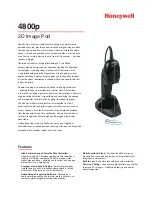
4: Software Operation: Tools for Successful Tracking
43
43
43
43
Command Utilization
The host may tell The Bird what type of data to send when a data request is issued. The desired
type of data is indicated by sending one of the following data record commands: ANGLES,
MATRIX, POSITION, QUATERNION, POSITION/ANGLES, POSITION/MATRIX or
POSITION/QUATERNION. These commands do not cause The Bird to transmit data to the
host. For the host to receive data, it must issue a data request. Use the POINT data request each
time you want one data record or use the STREAM data request to initiate a continuous flow of
data records from The Bird. If you want to reduce the rate at which data STREAMs from The
Bird, use the REPORT RATE command. All commands can be issued in any order and at any
time to change The Bird's output characteristics.
The following is a hypothetical command sequence, issued after power-up, which illustrates the use
of some of the commands.
COMMAND
ACTION
ANGLES
Output records will contain angles only.
POINT
Bird outputs ANGLES data record.
STREAM
ANGLE data records start streaming from Bird and will not stop until the
mode is changed to POINT or the STREAM STOP command is issued.
POINT
An ANGLE data record is output and the streaming is stopped.
Response Format
Two types of binary data are returned from The Bird:
1.
Position/Orientation
data
2.
CHANGE/EXAMINE VALUE
data
Position/orientation
data are the data returned from The Bird in the ANGLES, POSITION,
MATRIX, POSITION/ANGLES, POSITION/MATRIX, POSITION/QUATERNION and
QUATERNION formats. This data is returned in one or more 8-bit data bytes, using a special
format described below.
All other types of data that The Bird returns are in the
CHANGE/EXAMINE VALUE
data
format. This data is also returned in one or more 8 bit data bytes, using the response format
described with each Change/Examine value command. (see the 'Command Reference' section for
details). The Change/Examine value data is not shifted and does not contain the 'phasing' bits
found in the Position/Orientation data.
!
Tip:
Check
out the sample
program
at the end of this
Chapter (and on
the CD-ROM) for
further illustration
of the command
usage.
Summary of Contents for laserBIRD
Page 3: ......
Page 5: ......
Page 7: ......
Page 11: ......
Page 21: ......
Page 32: ...3 Configuration and Basic Operation 25 25 25 25 Figure 3 3 Sensor Mounting Dimensions inches...
Page 42: ...3 Configuration and Basic Operation 35 35 35 35 Figure 3 6 Horizontal Field of View...
Page 43: ...laserBIRD Installation and Operation Guide 36 36 36 36 Figure 3 7 Vertical Field of View...
Page 45: ......
















































